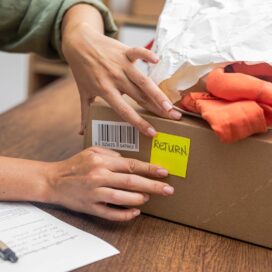The limits of resilience
Published: June 25, 2020 / Author: Brendan O'Shaughnessy

Dean Shepherd: Domestic violence dampens the success of microfinance
Dean Shepherd has taken a psychological approach to the study of entrepreneurship ever since the failure of his father’s business. The sudden demise of a 30-year-old business left his father an emotional wreck and his family in financial devastation.
This experience and his research on entrepreneurial resilience led him to reject the idea that learning from failure is immediate or automatic. Instead, it requires the business owner to address the accompanying grief and discover some meaning from the failure.
Variants and offshoots of this central insight led the Ray and Milann Siegfried Professor of Entrepreneurship in the University of Notre Dame’s Mendoza College of Business to be recognized as the world’s leading scholar in entrepreneurial research in a 2017 study that considered both his prolific output and a weighted count of citations to his work.

Dean Shepherd
Shepherd said he thinks of entrepreneurship as a tool, but his latest research is the first to explore why some people who need it the most aren’t able to access this tool. His new study, “Violence Against Women and New Venture Initiation with Microcredit: Self-efficacy, Fear of Failure, and Disaster Experiences,” published in November 2019 in the Journal of Business Venturing, found that domestic violence prevents women from gaining the potential benefits of entrepreneurship.
“That’s the key to this paper, and I don’t think I’ve said that in any other paper before,” Shepherd said. “We have to look at what’s holding them back from using the tool.”
Shepherd decided to look at domestic violence after speaking with his co-author, Abu Zafar Shahriar, a finance professor from his native Australia who was studying microfinance in rural Bangladesh. Shepherd said most research on entrepreneurship is in the high-wealth western world even though it “becomes even more important in resource-poor environments, maybe even a survival mechanism.”
A local microfinance group gave small loans to 718 women in two poor districts in Bangladesh. Shepherd and Shahriar’s study surveyed 583 of these women and found that 28% had experienced domestic abuse. While 18% of the non-abused women used the loan to start a business, only 10% of the abused women did so.
“What’s interesting about this study is that the effectiveness of microfinance depends on whether these women face domestic violence or not,” Shepherd said. “So throwing more money at the women to create more ventures won’t work if we don’t address this issue of domestic violence.”
Much of Shepherd’s earlier research has confirmed the old adage that “necessity is the mother of innovation.” After a devastating trauma such as an earthquake or a death in the family, entrepreneurship often thrives because it provides the only choice to survive.
Why is domestic violence so different? Shepherd suggests two hypotheses to explain the mechanisms involved. The continual nature of domestic violence has “a cognitive impact on these people, where, one, they don’t think they can be successful, and two, they are fearful of failing.”
“All potentially traumatic events shatter your fundamental assumptions about yourself, other people and the world,” Shepherd said. “Entrepreneurship is a process by which we can start to build these back. But these women continually face negative reinforcements about themselves, which never gives them a chance to act in ways that can start to rebuild the assumptions.”
Shepherd calls the first challenge entrepreneurial self-efficacy, which is the belief that you can be successful in starting a business. That belief makes the entrepreneur more likely to persist in the face of obstacles and therefore more likely to succeed. Domestic violence usually causes low self-esteem, which prevents the abused from believing they will be successful.
The second challenge is the fear of failure, which would naturally be higher for people afraid of further abuse. Unfortunately, the people who could most benefit from their own source of income may be afraid of becoming an entrepreneur and failing, creating an unbreakable cycle.
Finally, Shepherd said natural disasters amplify the negative effects of domestic violence by reinforcing the idea that entrepreneurial success is unlikely.
Entrepreneurial research, he said, is finally starting to trend toward disadvantaged parts of the world, where he thinks it can help people advance their lives. But in this paper, he recognizes the limits of resilience.
“We tend to think that microfinance is going to be this silver bullet that’s going to be able to help all people in poverty,” he said. “But maybe there are some other underlying causes that we need to be addressing in order for microfinance to work. We could probably get a double bang for our buck if we reduce domestic violence. It would improve the person’s life for starters, but it would also magnify the benefits of the microfinance that we offer.”
Related Stories




